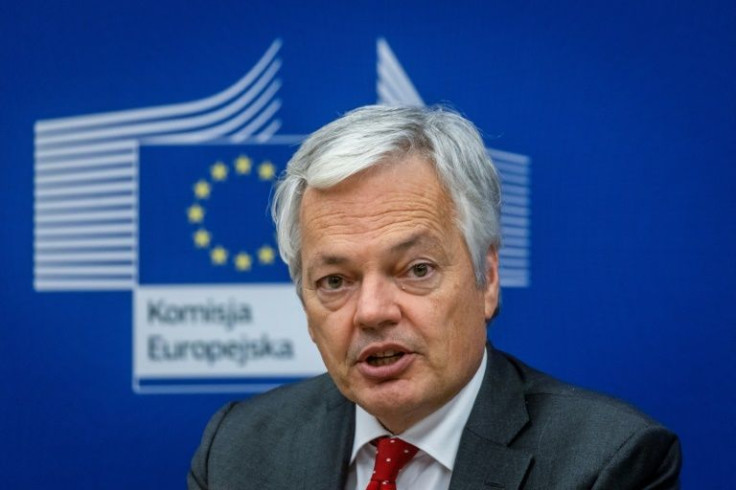EU Takes Step Towards Punishing Poland And Hungary
The European Commission wrote to Poland and Hungary on Friday to launch a process that could lead to them being deprived of funds over threats to the EU legal order.
The move came as the European justice commissioner visited Warsaw, expressing concern about the independence of the judiciary and urging the government to respect EU court rulings.
"The Commission services sent administrative letters to Hungary and Poland," a Commission spokesperson said, adding that they "have now two months to send the requested information".
A European source told AFP that Brussels demanded Warsaw explain measures it has taken to limit the independence of its judiciary and to challengee the supremacy of EU law.
In Hungary's case, the commission will raise concerns over public contracts, conflicts of interest and corruption in the spending of EU funds, the source said.
Poland and Hungary are the first states to be targeted under the EU's new "conditionality mechanism".
The new process entered into force in January and is separate from the bloc's infringement procedures for members deemed in breach of EU rules.
Under it, national governments can eventually find themselves cut off from EU funding if they fail to bring their practics in line with EU law.
Both Warsaw and Budapest have contested the legality of the mechanism and appealed to the European Court of Justice, which could rule within months.

The European Commission, which oversees the use of the mechanism, has said it will not take formal action until the court has ruled whether it is in bounds.
But officials have begun assembling the evidence necessary to proceed -- hence Friday's requests for information.
"We don't start concretely the formal procedure today," Justice Commissioner Didier Reynders said in Warsaw, calling the letters "a mechanism of clarification".
Reynders urged Poland to abolish a "disciplinary chamber" for judges -- a central part of judicial reforms pushed through by the populist Law and Justice (PiS) party despite EU objections.
Reynders said Poland must also reform the disciplinary system for judges and re-install judges removed by the reforms, which the government says are needed to root out corruption.
"The main concern that we have in Poland is about the independence of the judiciary," Reynders told reporters.
Poland has ignored an EU court order to scrap the disciplinary chamber and its Constitutional Court last month issued a ruling challenging the primacy of EU law.
Reynders also commented on two photographs of the devastation in Warsaw after World War II given to him by Polish Justice Minister Zbigniew Ziobro during their meeting.
Ziobro had tweeted that the photos showed "the destruction that the Germans made, implementing the ideology of the segregation of nations".
"They show that Poles are and will be sensitive to the principle of equal treatment of countries, also in the EU," Ziobro said.
The current Polish government complains that it is being unfairly treated in the EU.
Asked about the photos, Reynders commented that "after the Second World War, it was possible to build the European Community and then the European Union... to have a real peaceful continent in Europe".
© Copyright AFP 2024. All rights reserved.











